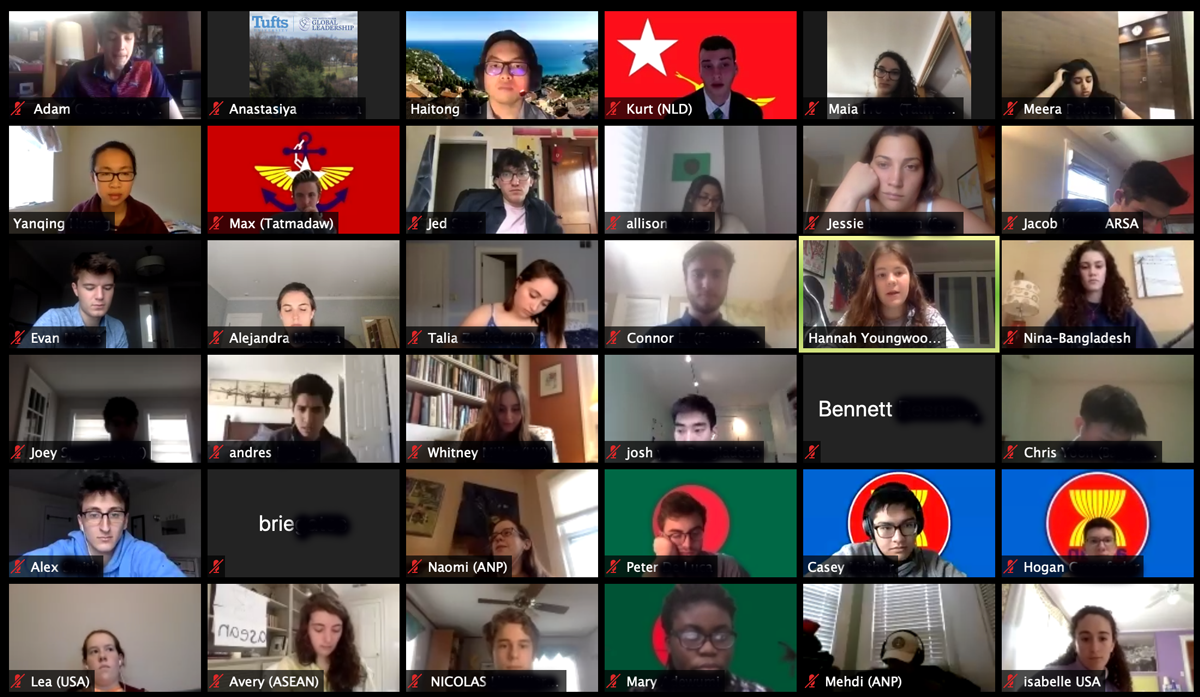Event – Inquiry Simulation 2020

Inquiry held its 29th annual simulation this year, albeit in a very different format than it usually takes. The more than 200 high school students and 19 EPIIC students who were part of Inquiry spent the last few months preparing for the simulation, which focused on the Rohingya Crisis in Myanmar and Bangladesh. Just three weeks before the simulation, the country began its shutdowns, closing universities and school systems.
While EPIIC was able to postpone the symposium, given the breadth of Inquiry participation and that a number of the high school students were seniors, as well as the structure of secondary school academic calendars, it would not have been feasible to hold Inquiry in the fall.
With these factors, the IGL decided to hold Inquiry online, via Zoom. Three schools, with 60 plus students, were able to participate, while others felt that they would not be able to with the demands they and their students were facing in moving to online learning.
On Friday, April 3, for three hours the IGL hosted the Inquiry simulation. The committees were condensed from seven to three, with discussions on “Governance and Security”; “Human Rights, Law and Reconciliation”; and “Development and Repatriation.” Ten roles were represented – the National League for Democracy (NLD), the Arakan Rohingya National Organization (ARNO), the Arakan Rohingya Salvation Army (ARSA), the Tatmadaw (Deep State/Myanmar Military), the Rakhine State Government/Arakan National Party (ANP), Bangladesh, the United States, the United Kingdom, ASEAN, and the Organization for Islamic States (OIC) – with the EPIIC students jumping in and playing two of the roles.
The students were told that the United Nations Security Council, taking into account the International Court of Justice unanimous ruling that Myanmar had breached the Convention on Genocide and its order for Myanmar to implement emergency measures to protect the Rohingya against violence, had issued a mandate for Myanmar to develop a plan to repatriate, integrate and protect the Rohingya people from Bangladesh and other countries. Within the context of their committees, this included developing a plan to restructure Myanmar’s government to make it more stable and equitable, developing a plan for economic integration and development of the Rakhine State along with reconstruction of the destroyed villages, and developing a plan for protecting the rule of law and human rights as well as for reconciliation.
The high school students and EPIIC students engaged enthusiastically and, with just a few hiccups, the students had productive and thoughtful discussions on this difficult issue.
The teachers appreciated that the IGL was able to offer students a way to engage despite the challenging circumstances, writing, “Thanks IGL for putting together this version of the conference in such trying times. I think it was important.” And, the “kids overwhelmingly loved the webinar, your [Tufts] kids and their friendliness, and the great kids from the other schools. I’m sooooo happy you organized this. Let the kids know how grateful I am!”
An unexpected consequence of this situation is realizing how Inquiry can use online engagement in the future throughout the year to have the high school students engage with each other prior to the on-campus simulation.
